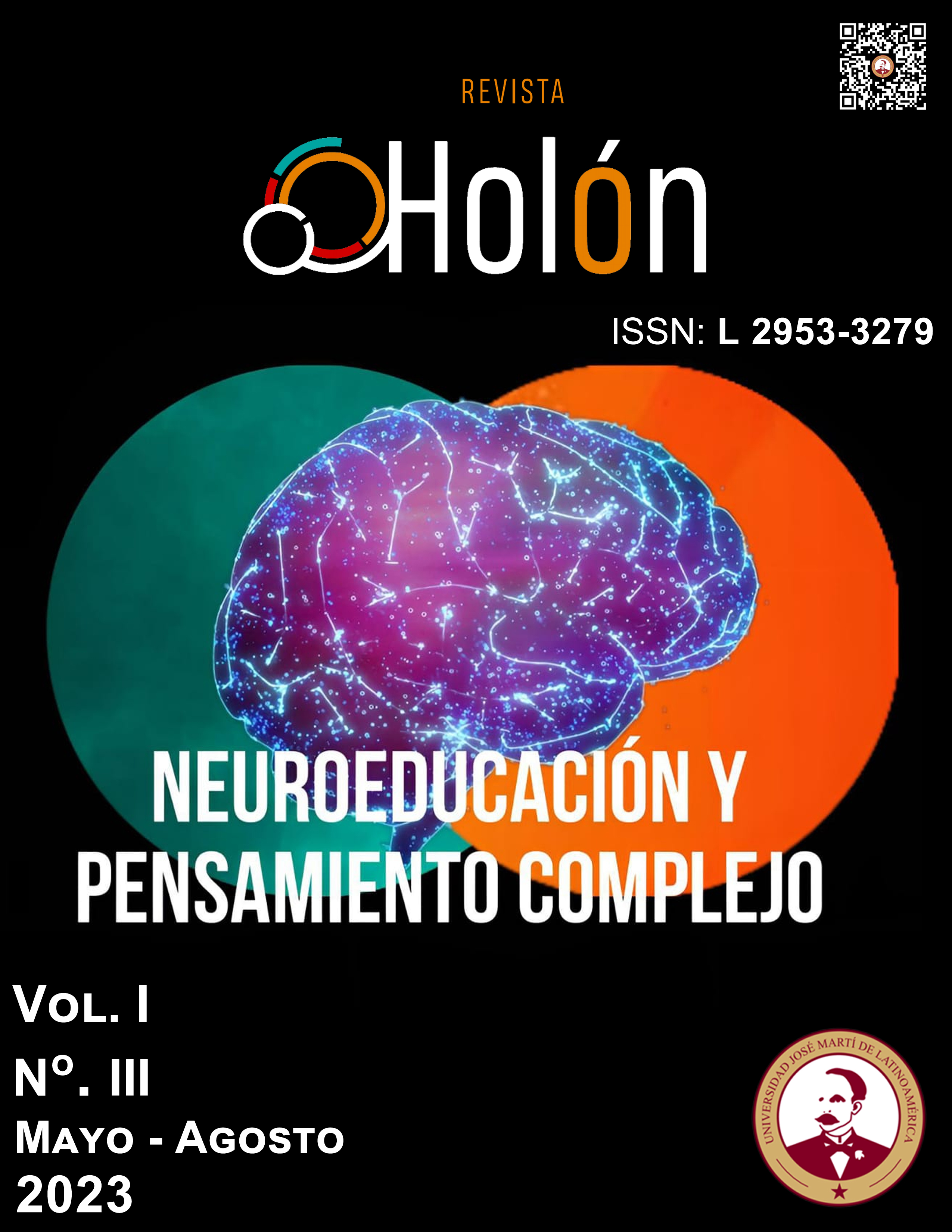

Copyright (c) 2023 Revista Holón

This work is licensed under a Creative Commons Attribution-NonCommercial-ShareAlike 4.0 International License.
Consciousness and noogenesis have been studied under multiple fragmentary approaches by different branches of science. The incursion of neurosciences in the redefinition of cognitive processes, conceptualization of the understanding of consciousness and new contributions on noogenesis in the individual have a profound impact on pedagogy. Contributions of neurobiologists resize the educational process, but also lead to tendencies that produce some philosophical and/or pedagogical aberrations and present insoluble situations from the point of view of fragmentary science. Holistic education poses consciousness and noogenesis as two complex processes intertwined between the microcosm and macrocosm with flows of exogenous and endogenous information converging with the individual-collectivity cluster. Noogenesis is a nonlinear and complex process that in certain contexts may present aberrations, such as the growing wave of human pathologies caused by the increasing flow of information, deterioration and reduction of the vocabulary of the young generations, loss of space and capacity for reflection, in addition to the marked deterioration of the intelligence of the western population. Apparently, the flow of exogenous information does not automatically precipitate noogenesis. It is the reflection carried out and completed by a great flow of endogenous mental and emotional information (produced in response by the individual-collective itself), with prolonged attention (ample spaces for reflection) and a holistic transdisciplinary approach, which creates the possibility of reversing the present noogenic involution, in an evolution of significant individual and collective consciousness